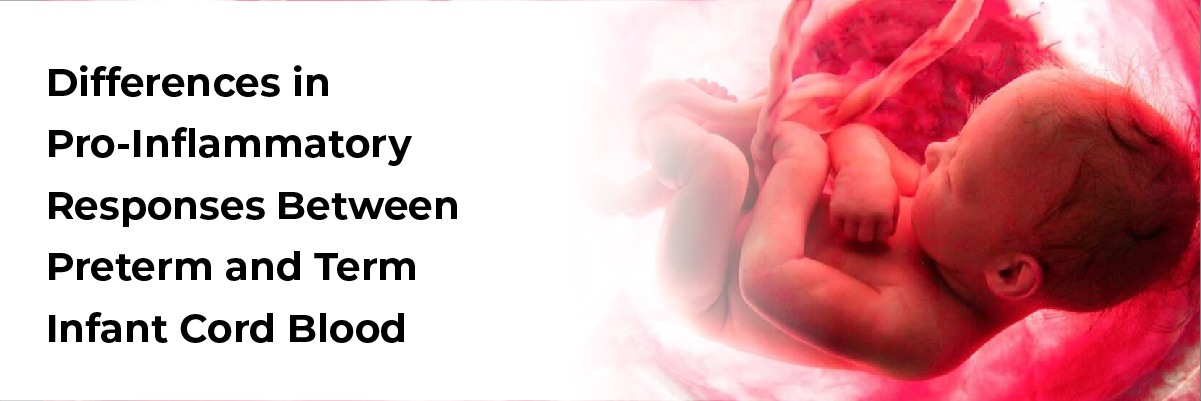
 IJCP Editorial Team
IJCP Editorial Team
Differences in pro-inflammatory responses between preterm and term infant cord blood
Infants born preterm are highly susceptible to infectious diseases, which many factors may contribute to; however, the immature nature of the preterm immune system remains one key factor.
A recent study used high-dimensional flow cytometry and cytokine assays to characterize the immune profiles in 25 preterms (range: 30.4-34.1 weeks gestational age) and 25-term infants (range: 37-40 weeks gestational age) in cord blood samples.
The study found that preterm infants have-
- A Reduced frequency of monocytes, CD56bright NK cells, CD8+ T-cells, and γδ T-cells compared to term infants.
- An increased frequency of intermediate monocytes, CD4+ T-cells, central memory CD4+ and CD8+ T-cells, Tregs, and transitional B-cells compared to term infants.
- Lower Pro-inflammatory cytokines IL-1β, IL-6, and IL-17A in addition to chemokines IL-8, eotaxin, MIP-1α, and MIP-1β.
- Higher IL-15 and MCP-1.
This study identified the key differences in pro-inflammatory immune profiles between preterm and term infants, thereby allowing for the development of targeted interventions to protect preterm infants who are more susceptible to infectious diseases during early life.
Source:. Front Immunol. 2021 Nov 1;12:777927. doi: 10.3389/fimmu.2021.777927. PMID: 34790206; PMCID: PMC8591285.

IJCP Editorial Team
Comprising seasoned professionals and experts from the medical field, the IJCP editorial team is dedicated to delivering timely and accurate content and thriving to provide attention-grabbing information for the readers. What sets them apart are their diverse expertise, spanning academia, research, and clinical practice, and their dedication to upholding the highest standards of quality and integrity. With a wealth of experience and a commitment to excellence, the IJCP editorial team strives to provide valuable perspectives, the latest trends, and in-depth analyses across various medical domains, all in a way that keeps you interested and engaged.




















Please login to comment on this article